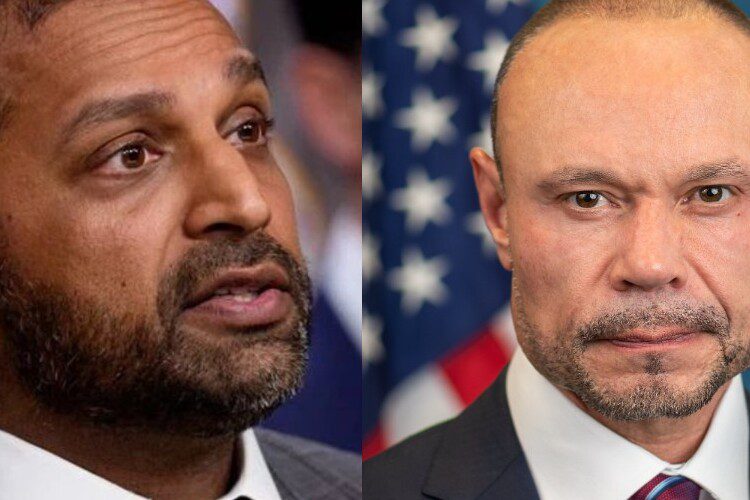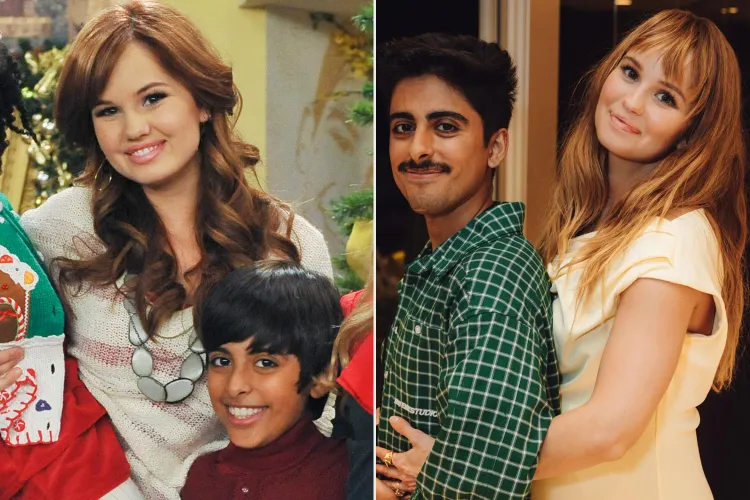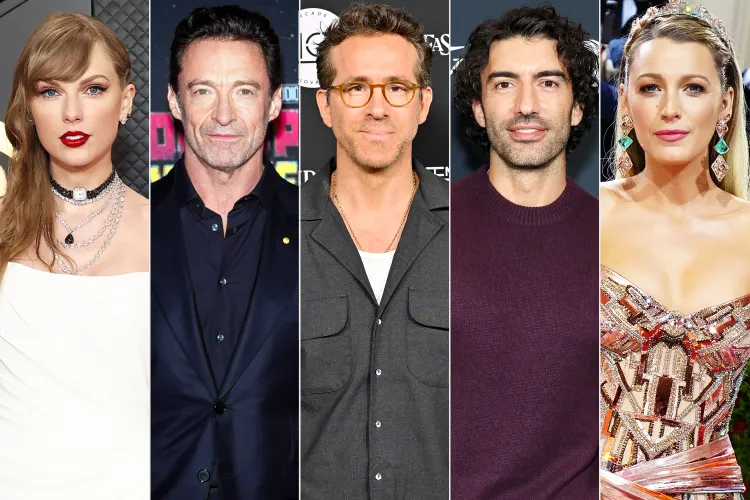Pam Bondi Vows Ultimate Justice for West Virginia Heroes Ambushed in Heart of DC as Families Cling to Hope and Healing
The winter chill had not yet settled over Washington, D.C., on the afternoon of November 26, 2025, when the sharp cracks of gunfire pierced the midday calm of Farragut Square, a verdant pocket park where office workers paused for lunch and tourists lingered by the Civil War admiral’s statue. In an instant that would etch itself into the nation’s memory, three National Guard troops from West Virginia—Sgt. Michael Harlan, 28, Staff Sgt. Elena Vasquez, 32, and Specialist Sarah Beckstrom, 20—became the targets of a brazen ambush, their lives forever altered by bullets fired from a .357 Magnum revolver wielded by Rahmanullah Lakanwal, a 29-year-old Afghan immigrant who had once aided U.S. forces. Harlan and Vasquez succumbed to their wounds within hours, Harlan from a fatal chest shot and Vasquez from upper-body trauma, leaving behind husbands, children, and communities that would gather in tearful vigils under mountain skies. Beckstrom, the youngest, clung to life after abdominal and shoulder injuries, her father Gary at her bedside in MedStar Washington Hospital Center, whispering prayers as doctors fought to stabilize her. Now, as the investigation unfolds with Lakanwal facing federal terrorism charges, Attorney General Pam Bondi has vowed to seek the death penalty, a decision that brings a measure of resolve to grieving families while stirring the quiet ache of a country confronting violence’s cruel randomness in its own backyard.

Bondi’s announcement came swiftly, on November 27 during a somber press conference in the Department of Justice’s Great Hall, where portraits of past attorneys general gazed down like silent witnesses. Flanked by FBI Director Kash Patel and U.S. Attorney for D.C. Shawn Samuels, the 59-year-old former Florida prosecutor—known for her unyielding stance on crime during Trump’s first impeachment trial—spoke with a voice steady but edged with sorrow. “The Department of Justice will pursue the death penalty against Rahmanullah Lakanwal for the cowardly ambush that took the lives of two brave Guardsmen and left a third fighting for hers,” Bondi said, her blue suit a stark contrast to the hall’s mahogany tones as she displayed photos of the fallen—Harlan in his dress blues, Vasquez with her son Luca, Beckstrom smiling in fatigues. “These were not just soldiers; they were sons, daughters, parents—ordinary Americans doing extraordinary work to keep us safe. Justice demands the ultimate accountability.” The move, under the federal death penalty statute for terrorism-related murders, signals the administration’s intent to classify the shooting as a hate crime tied to Lakanwal’s alleged radicalization, a step that could lead to lethal injection if convicted, pending a jury’s decision.
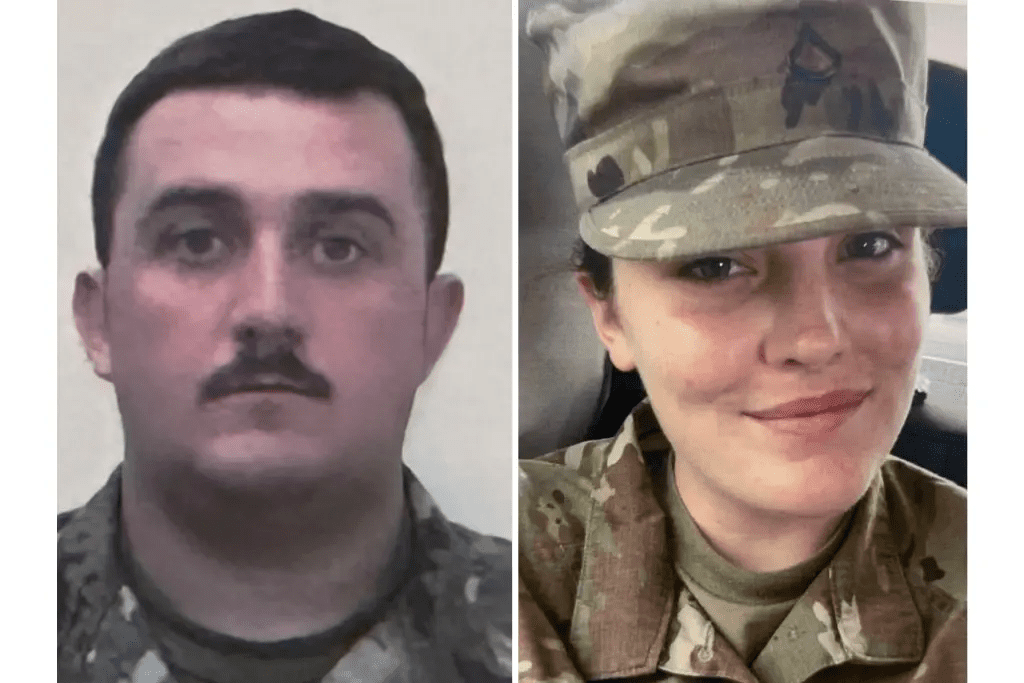
The ambush itself, unfolding in under 60 seconds but reverberating for lifetimes, began with Lakanwal’s 3,000-mile drive from Bellingham, Washington—a quiet border town where he had resettled with his wife and five children after arriving via the Special Immigrant Visa program in 2021. Pulling up to Farragut West Metro in a rented van, he staked out the square, a leafy oasis two blocks from the White House, where the Guardsmen were on a standard patrol amid D.C.’s post-election security rotations. Harlan, a soft-spoken father from Huntington who reenlisted after a European tour, was joking about Thanksgiving pie with Vasquez, a Charleston single mom pursuing criminal justice studies, when Lakanwal approached from behind a bench. Firing four rounds, he struck Harlan fatally in the chest and Vasquez in the upper body; Beckstrom, hit in the abdomen and shoulder, dropped her sidearm, which Lakanwal seized to press the attack. “Allahu akbar,” he yelled, but a nearby Guard major—unarmed and on rounds—lunged with a pocket knife, stabbing him in the head during a reload pause, creating the vital seconds for Sgt. Marcus Hale from the Virginia Guard to sprint in and fire two disabling shots into Lakanwal’s legs and buttocks. Bystanders, from a food truck vendor administering CPR to a mother shielding her toddler, formed a human barrier until zip-ties secured him.
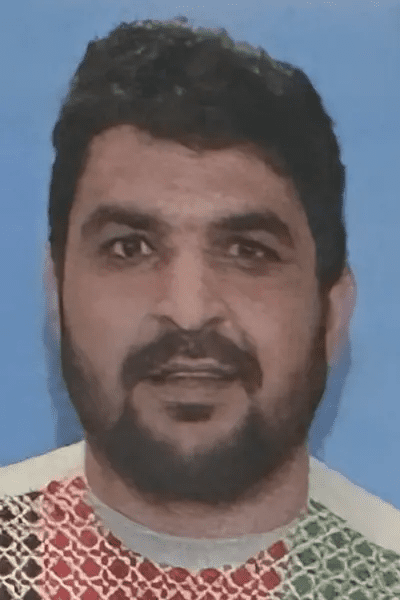
For the families, the hours since have been a blur of vigils and vows, their grief a shared blanket over the holiday hush. Gary Beckstrom, 52, a Beckley mechanic with grease-stained hands from years under hoods, arrived from West Virginia on a chartered flight, his world narrowing to Sarah’s bedside where monitors beep a fragile rhythm. “She’s my girl—the one who fixed my coffee just right. Doctors say it’s bad, a mortal wound, but she’s fighting,” Gary told a New York Times reporter in the waiting room, his voice a father’s quiet defiance as he stroked her hair, her uniform patch a badge of the life she cherished. Lisa Harlan, Michael’s widow and mother to a 4-year-old daughter and newborn son, fielded calls from Charleston, her home filled with casseroles from neighbors who knew Michael’s gentle laugh from VFW poker nights. “He kissed me goodbye that morning—said he’d be home for pie. Now, this justice… it feels like too little, too late,” she shared, her resolve cracking as she planned his funeral beside the Ohio River he loved. Vasquez’s brother, Carlos, in Charleston with 7-year-old Luca, read bedtime stories over speakerphone, the boy’s questions—”When’s Mommy coming?”—a dagger that lingers. “Elena’s tough—she balanced deployments with school. Luca drew her with wings; that’s how we’ll remember her.”
Bondi’s pledge, rooted in the 1994 Antiterrorism and Effective Death Penalty Act, aligns with the administration’s post-shooting security surge—500 additional Guard troops to D.C., a USCIS pause on Afghan visas, and FBI raids on Lakanwal’s Anacostia apartment yielding a journal with “infidel targets” and encrypted files. Lakanwal, a former Kandahar contractor for U.S. forces, entered via the SIV program in 2021, his green card lapsed in 2024 amid backlogs flagged in a June Justice report. “He helped us—translated under fire. Betrayal like this cuts deep,” a former handler told Reuters, the pain a quiet undercurrent to the probe’s momentum. The death penalty bid, rare but pursued in 20 federal cases yearly, requires proving aggravating factors like terrorism intent, a bar Bondi’s team—bolstered by Patel’s FBI—aims to clear with digital forensics and witness testimonies. “We’ll seek the maximum—these families deserve closure,” Bondi said, her eyes meeting cameras with the steel of a prosecutor who once grilled Trump allies.
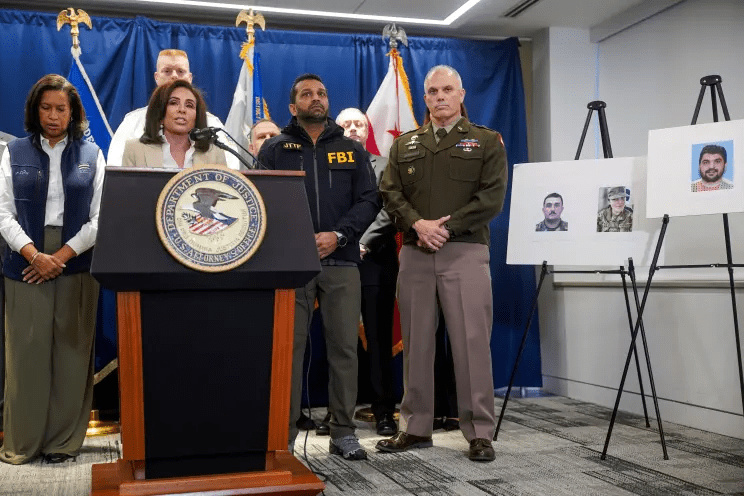
Public mourning swelled like a tide, from West Virginia’s hollers to D.C.’s diverse quarters. In Beckley, 2,000 packed the high school gym for a vigil, voices rising in “Amazing Grace” as Luca released balloons with “Mommy Strong” messages. GoFundMe for the families topped $1.8 million, from Guardsmen to celebrities like Brad Paisley, a West Virginian who tweeted, “For Sarah, Michael, Elena—heroes who made us proud.” Social media, under #JusticeForGuardsmen, trended with 5.5 million posts—photos of Beckstrom’s nursing cap, Harlan’s river sketches, Vasquez’s trooper application. In Anacostia, leaders hosted interfaith prayers, Imam Khalid Rahman speaking to crowds: “Loss like this calls us to kindness—Sarah’s fight is ours.” Sen. Elissa Slotkin, whose comments drew scrutiny, posted condolences: “Sarah’s courage humbles me—full recovery, brave one.”
As November 28 dawned, with troops patrolling under streetlights, the vigil became America’s—a call to cherish service’s quiet cost. For Gary, holding Sarah’s hand through the night, and Lisa reading to Michael’s urn, Bondi’s vow offers a thread of hope. In a season of thanks, their stories remind that heroes like them deserve justice swift and sure.

